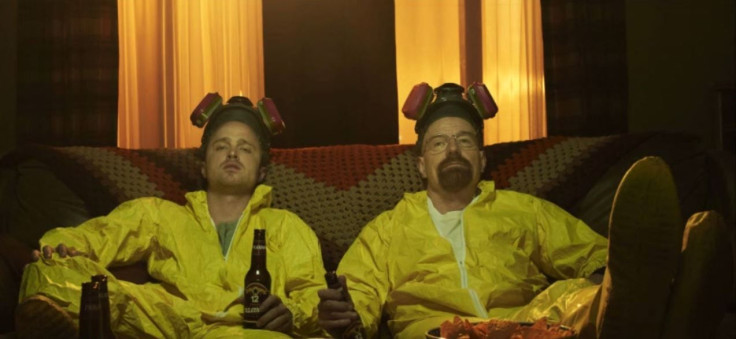Celebrity Memorabilia: Americans Pay Up For Celebrity Stuff To Get Their Essence, But Others Just See It As Regular Stuff

Growing up, many of us were taught that if you saved comic books or got a famous athlete’s autograph you would be able to sell it later for lots of money. Well, selling for lots of money they are. Scroll through Amazon’s entertainment collectibles section and you’ll find a Hazmat suit signed by the cast of Breaking Bad selling for $1,249 (it’s not even the suit from the show!), a pair of gloves worn by John Wayne for $35,000, and a pair of Vulcan ears worn by Robin Curtis when she played Mr. Spock’s protégé, Lt. Saavik, on Star Trek III: the Search for Spock — those are going for $2,995, a deal! But why are people so obsessed with owning these types of items?
A new study finds that we Americans are just that into individualism. Everything we consider our own, such as our pets, clothes, hobbies, and other belongings define who we are and what we do. Owning a piece of a celebrity is part of that — even if that piece is only the DNA on the inside of a hat.
But it goes further than that, according to the researchers, who say that the real reason we value something like Justin Timberlake’s uneaten French toast (it sold for over $1,000 in 2000) over the French toast you cooked this morning is because of “valuing contagion,” or the law of contagion — the belief that some magical power will transfer their essence through their belonging. Contagion is a pretty popular belief developed throughout childhood in the West, the authors wrote.
Meanwhile, the other group the authors studied lived in India, in communities that took a more collective mindset, placing emphasis on interdependence. In experiments between Westerners and Indians, they asked participants to place values on a painting by a famous artist, a sweater once worn by John F. Kennedy, a dinosaur bone, and a moon rock. Then, they told participants that a machine had been invented that could produce exact duplicates of the objects.
Both groups agreed upon similar, higher values for the authentic bone and moon rock, and also agreed that the authentic painting was worth more — Westerners placed a slightly higher value on this item. But when it came to J.F.K.’s sweater, Westerner’s valued it far more than the duplicate, while Indians believed they were one and the same. The researchers then did the same experiment on a different group to control for the fact that J.F.K. was an American president, and told participants the sweater had come from their favorite celebrity. Still, the findings were consistent.
“This paper provides the first empirical demonstration that contagion items are attributed greater monetary valuation in the West than in the East,” the authors concluded. They said that it’s not because of the value associated with authenticity, but because Western culture values individualism while Eastern cultures value collectivism. “These findings have important implications for our understanding of cultural variance in the extended-self concept and, more broadly, the psychological mechanisms underlying our preferences for authentic items.”
Source: Gjersoe N, Newman G, Chituc V, Hood B. Individualism and the Extended-Self: Cross-Cultural Differences in the Valuation of Authentic Objects. PLOS One. 2014.



























